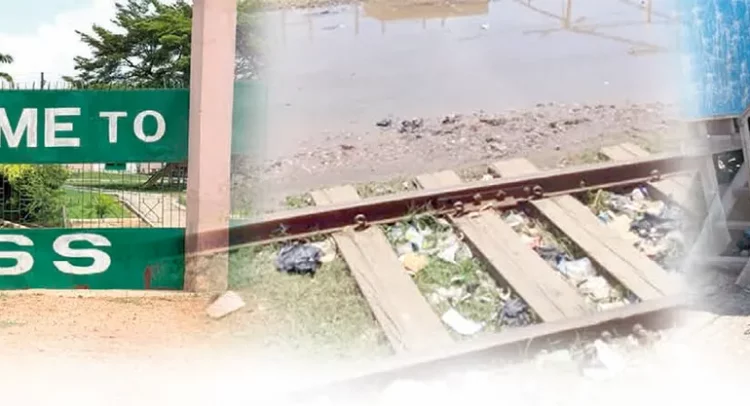The sale of illicit drugs, prostitution, naked jams and above all security provide a conducive area for criminals in the general area bordering the Ghana Lebanon Islamic Senior High School (GLISS) in Accra to enjoy themselves in the evenings.
The land under review is shared by the Ghana Railway Company Limited and GLISS, but none of the two have control over the security of the place.
As for the former, they appear to have given up on their legal ownership of their land, as it stretches along the railway lines from Agbogbloshie to Dzorwulu. The area has been trespassed by squatters, with some of them putting up permanent brick and cement structures as though there is no law in the country.
We shall however restrict ourselves to the portion of the stretch which is owned by GLISS but which has been usurped by criminals.
Parents and the school authorities have rightly expressed concern about the proximity of the school to the high risk misconduct by dangerous criminals who do not mind standing off with the authorities, as they are reported to have done before.
We can smell trouble brewing as the criminals would not take kindly to the report about their activities in the area under review.
GLISS is a good school which has churned out graduates – many of whom are in various disciplines.
The indiscipline which students of the school are being exposed to must be checked lest it infects the students. Social contagions such as smoking of Indian hemp, the taking of narcotic substances are infectious to students, vulnerable as they are.
The situation is especially worrisome because the nasty spectacles occur in the full glare of the students, the temptation too serious to be ignored.
The security of the students and teachers is under threat since the criminals, high on drugs, can descend upon them when they discover the threat to their occupancy is emanating from them.
It is unacceptable when we hear the story that the authorities have tried but to no avail to uproot the criminals from the slum.
Slums, when they start to grow, must be stopped forthwith, but unfortunately we allow them gain roots to the stage we are witnessing at the squalor threatening the security of GLISS.
We expect the authorities led by the municipal assembly and the police to uproot the slum.
We cannot ignore the possibility of politics having a hand in the development. At a time when the slums are in their formative stage, politicians obsessed with making electoral gains would defend the slum dwellers to the hilt.
When later efforts are made to uproot them, challenges such as reported by the school authorities should not surprise us.
Let the authorities act fast to save a future consequence which would be anything but peaceful.


